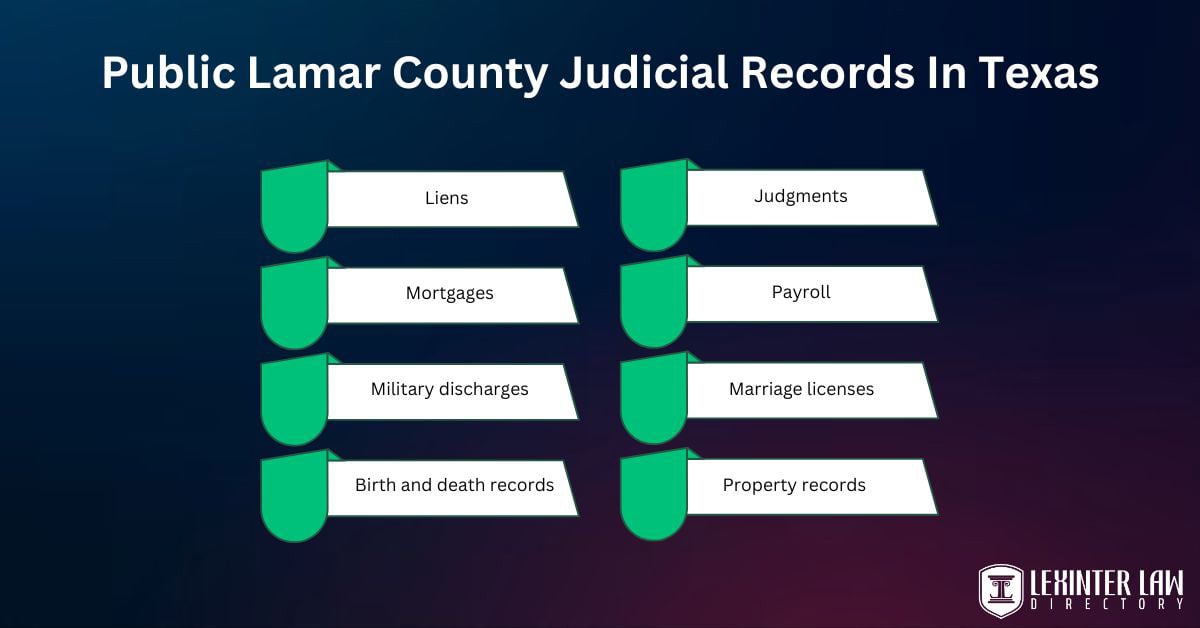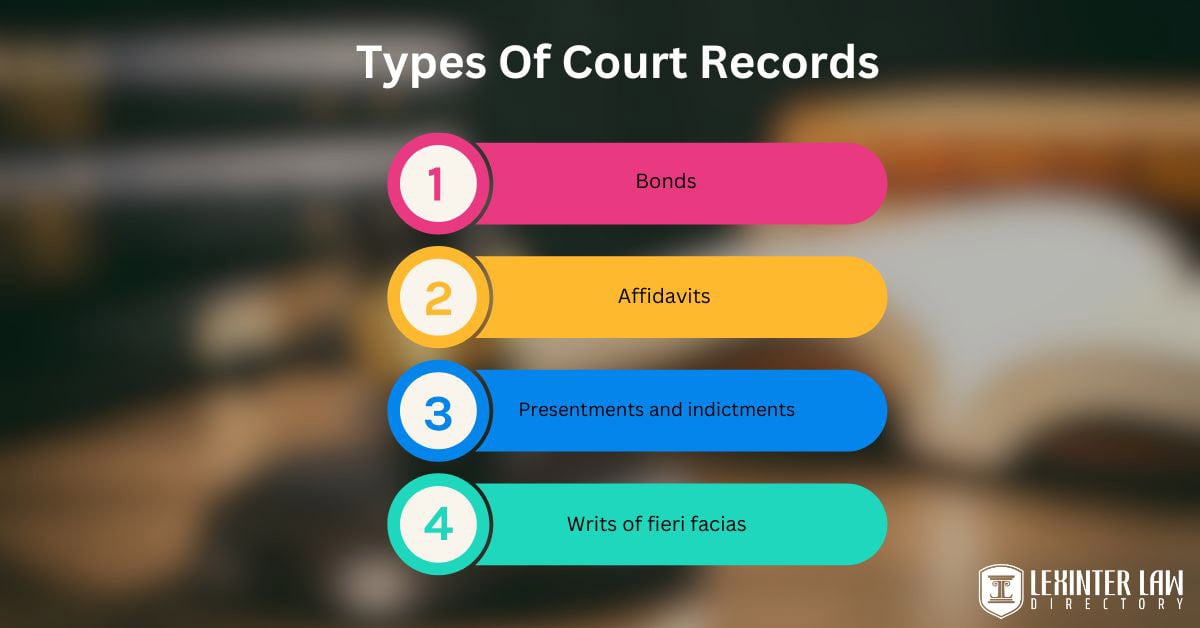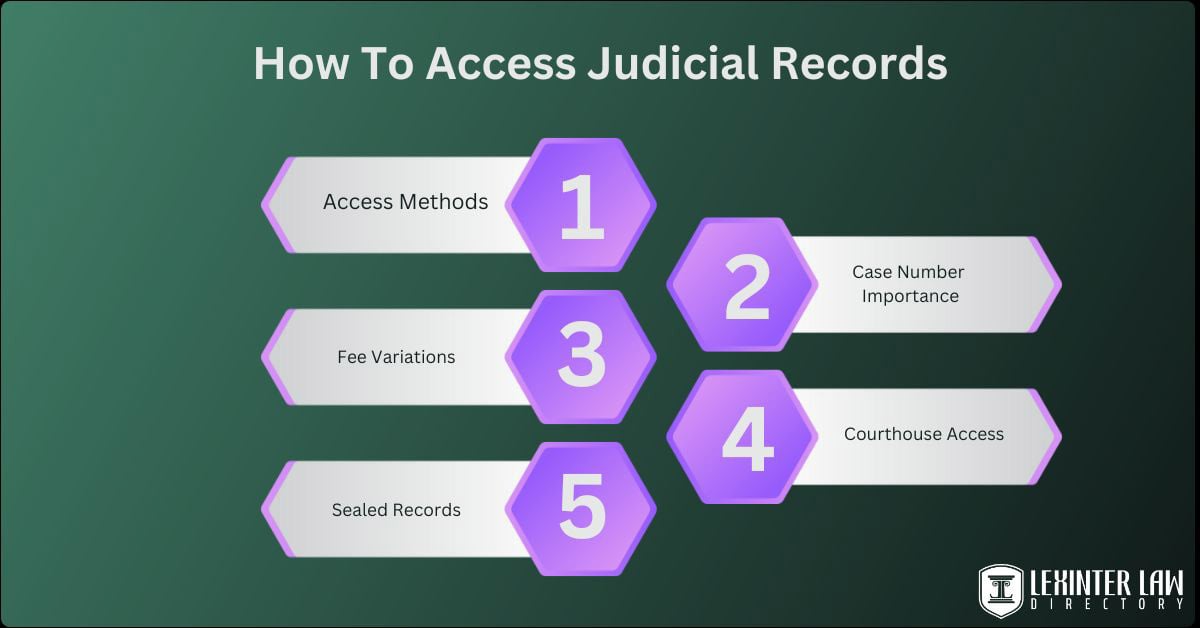Get Lamar County Judicial Records From The Clerk Of Court’s Office
Lamar County judicial records serve as a useful source of information for reporting on matters of public interest, and these days, electronic access to court records is the new norm.
Lamar County is a county located in the state of Texas in the United States. Just like the other counties, it has courts. The Lamar County Justice Court Judges and Clerk’s Office provide court services to the citizens of Lamar County. These Justice Court Judges are committed to providing Lamar County judicial records and other services for all citizens.
The courts in Lamar County are busy and handle roughly 6,000 cases a year. In fact, the court system in the United States is made up of jurisdictions, precedents, rulings, and statutes and professionals spend their time trying to interpret and apply the law to the circumstances of citizens.
In Texas and in the United States, any registered user can log into a website known as PACER so as to examine federal case records. This is particularly true for those people who know the specific court where the case was filed. They can be sure, too, that this information is always updated as new records are filed with the court.
Table of Contents
Lamar County Judicial Records Stored Lots Of Information

Court proceedings in Lamar County can be criminal records about people who have committed crimes in Lamar County. State, local and federal authorities store all this information about people and use them for any number of purposes.
Access to Lamar County judicial records is important to the success of Texas and America’s success. Access to public records is seen as one of the reasons for America’s successful capital markets and the low cost of getting credit in the US.
Lamar County judicial records are used to locate suspects in cases. Courts can also use these criminal records to work out sentences for crimes committed. As suggested, you may not be allowed into a court proceeding.
Court records are open to members of the public to view and copy. You can look up public Lamar County judicial records in Texas and find things such as –
- Liens
- Judgments
- Mortgages
- Payroll
- Military discharges
- Marriage licenses
- Birth and death records
- Property records and much more
Legal disputes are about a host of different things, from acts of violence to divorce to inheritances to treason, debt, and more. So these Lamar County judicial records give one the best chance to even get to know your family from centuries ago.
Lamar County judicial records are public documents and members of the public have access to most court documents even before the matter has been called in open court. The state police of Lamar are supposed to keep a registry of all sex offenders. This doesn’t only include those living in the area but also those incarcerated inside the jurisdiction.
In Lamar County, all criminal, civil, and family cases fall within the jurisdiction of the County Courthouse. All records referring to these cases are acquired by the County Clerk. If you want to identify one of these Lamar County judicial records, you can get copies in Paris, Texas, or search online.
The County Clerk Keeps All Files
The files and records with regards to these important events can incorporate divorce decrees, divorce certificates and other divorce records, birth certificates, death certificates, marriage licenses, marriage certificates. The data files are all filed under one central vital document registry.
Looking for court records will require the person to at least have a little bit of knowledge about the person they are doing the search on. Knowing things such as their birth date and address as well as other bits of information make it more possible to gain more knowledge through the records made available to the public.
The clerk of the court has to attend to the minutes of the chancery court and record the court’s activities in different minute books and dockets. The Clerk of the Circuit Court has to safeguard the integrity of all Lamar County court records. The public can search the online database of court records in Lamar County.
For public view, you don’t require registration for online court records unless there are some additional documents you require. Even though the Clerk of the Court does maintain records online, you will discover that there are standard online services that are free but that there are also fee-based more advanced online services. You can get access to advanced family and civil court records which are free of charge.
You will find that some documents where children are involved are unavailable. It is important, however, that members of the public are allowed access to court records. The public isn’t able to access all court proceedings without access to the documents providing the basis for a court’s decision.
Court proceedings were documented in two forms – dockets which are bound volumes containing information about court proceedings and papers or case files that comprise more complete documentation of the different stages of a court case. The docket most familiar to family researchers is the court journal, which gives a summary of actions taken by the court at each term.
You can use court journals to determine when a certain matter was heard by the court. The dockets are digests so many names relevant to a case aren’t included in them.
Court minutes and papers aren’t particularly easy to access, except in cases where someone has published their contents in book form. Papers are different and are filed by individual cases. Most papers are filed by their dates and mixed with papers of other cases.
Types Of Court Records

Types of court records include important documents from legal cases. These records help track what happens in court and can include things like case files, bonds, affidavits, judgments, and warrants. Each type of record serves a purpose and helps keep legal matters organized and clear for everyone involved.
Bonds
Bonds are court records that show a promise made by someone to pay money or follow certain rules. This often happens in legal cases when a person agrees to pay a specific amount to ensure they return to court or follow the judge’s orders. For example, a bond can be used to let someone stay out of jail while waiting for their trial. These records help the court keep track of the promises and make sure they are kept.
Affidavits
Affidavits are court records that are written statements made by a person who swears that what they say is true. It seems like writing down important facts about something and promising to be honest. The person signs the affidavit in front of someone called a notary, who makes sure the promise is real. Courts use affidavits to learn what someone knows or believes about a case. They are important because they help judges understand the truth.
Presentments And Indictments
Presentments and indictments are court records used in criminal cases. A presentment is a report by a grand jury that says they believe a crime has happened. An indictment is a formal paper that accuses someone of committing a crime. It is written after the grand jury looks at evidence and agrees there is enough reason to charge the person. These records are important because they help start a trial and make sure legal rules are followed.
Writs Of Fieri Facias
Writs of Fieri Facias are court records that tell a sheriff or officer to collect money someone owes after losing a court case. This happens when a judge decides the person must pay, but they haven’t. The writ allows the officer to take property, like a car or money from a bank account, to pay the debt. It’s a way for the court to make sure people follow the judge’s orders and settle what they owe.
How To Request Records?
Requesting records means asking for official documents from a court or government office. To do this, you need to know what record you need, fill out a form, and sometimes pay a small fee. It’s crucial to follow the rules for requesting records so you get the right information. Let’s learn more about it.
Visit The Clerk’s Office
Visiting the clerk’s office is a simple way to request records. The clerk is a person who helps keep court documents organized. At the office, you can ask for the record you need by giving details like names, dates, or case numbers. Sometimes, you will need to fill out a form or pay a fee. The clerk will help you find the right record and explain the process. It’s a helpful place for getting important information.
Fill Out A Records Request Form
Filling out a records request form is an easy way to ask for official documents. The form usually asks for information like your name, the type of record you need, and details about the case, like names or dates. Once you fill it out, you will need to pay a small fee and submit it to the right office. This form helps the office find the exact record you’re looking for, making the process faster and more organized.
Provide Case Details And ID
When requesting records, providing case details and your ID is important. Case details include information like names, dates, or case numbers that help the office find the right record. Your ID proves who you are and shows you’re allowed to ask for the record. By giving these details, you make it easier and faster for the staff to locate what you need. Always check what specific information or identification is required before making your request.
Pay Required Fees
When you request records, you will need to pay a fee. This fee helps cover the cost of finding, copying, and giving you the document. The amount depends on the type of record and how many pages it has. You can usually pay with cash, a card, or a check. Once the fee is paid, the office will process your request. Paying the fee is an important step to make sure you get the records you need.
Receive Copies Of Records
After you request records, you will receive copies of the documents. These are paper or digital copies of the information you asked for, like a case file or court decision. Sometimes, you can pick them up at the office, or they can be sent to you by mail or email. It’s important to check the copies carefully to make sure everything you need is included. Getting these copies lets you keep the information for your own use or records.
How To Access Judicial Records

Most people access Lamar County judicial records by fetching them in person while others put in a written request.
Some courts also give you the option of accessing some of these records online. The courts provide web portals for searching for court records online.
Those who want to access Lamar County judicial records in person or by email or online can provide the correct information that can be used to facilitate the record search. Most times this includes the case number.
These case numbers are assigned to a certain case when it is filed in court. The numbers most times indicate the types of cases filed and also the date they were filed. It is good to know the correct case number when trying to locate a court record as it simply helps in the quick location of the requested records.
Some counties may charge an additional search fee if the person isn’t able to provide the case number for a particular court record.
You need to know that getting copies of judicial records in the state of Texas typically requires the payment of a fee. These fees vary by court. Costs vary between certified and non-certified copies.
The courts of the states are all transitioning to online portals. Lamar County judicial records are available at their courthouse. Courts have computers for public searches of court case information and judicial records in that court.
Sealed cases and sealed records aren’t public and some cases are also exempt from disclosure. If a record is public but not available through the public access portal, it will be available at the courthouse.
Online Access To Records
Online access to records lets you see important documents on a computer or phone. Many courts and offices have websites where you can search for records by entering details like names or case numbers. It’s a fast and easy way to find the information you need without visiting in person.
Use The Lamar County Portal
The Lamar County Portal is a website where you can look up records online. You can search for things like court cases by entering names, dates, or case numbers. The portal is easy to use and helps you find the information you need without leaving your home. You will need to create an account or pay a small fee for some records. Using the portal saves time and gives you quick access to important documents.
Search By Name Or Case Number
Searching by name or case number is a simple way to find records online. You type the person’s name or the case number into the search box on the website. The system then shows you matching records, like court cases or legal decisions. This method helps you quickly find the exact record you need. Make sure to spell names correctly and use the right case number for the best results.
Download And Print Records
Downloading and printing records online is easy and helpful. Once you find the record you need, there’s usually a button to download it to your computer or phone. After downloading, you can print it out if you want a paper copy. This is great for keeping important documents safe or sharing them if needed. Sometimes, there can be a small fee for downloading.
Check For Any Fees Online
When accessing records online, you must check if there are any fees. Some records are free, but others can cost money to view, download, or print. The website usually shows the fees before you complete your request. Make sure to read carefully so you know what to expect. You can pay online using a credit card or other options provided. Checking for fees helps you be prepared and ensures you can get the records you need.
Ensure Accuracy Of Search Details
When searching for records online, it’s important to make sure your details are correct. Double-check names, dates, or case numbers before entering them into the search box. Even small mistakes, like a misspelled name or wrong number, can make it hard to find what you need. Being accurate helps the system find the right record quickly. Taking a little extra time to check your information ensures your search is successful and you get the correct documents.
Common Issues And Solutions
When requesting records, common issues like errors in search details, missing information, or problems with payments can happen. Knowing how to fix these issues, like double-checking details, asking for help, or updating payment methods, can make the process smoother and less stressful.
Missing Case Numbers
Sometimes, you will not know the case number when searching for records. This can make it harder to find what you need. To solve this, try searching by the person’s name or the date of the case. You can also ask the clerk’s office for help—they can guide you to the right record. Providing as much information as you can, like locations or related names, makes it easier to find the correct details even without the case number.
Restricted Access To Sealed Records
Sealed records are private and not available to everyone, which can be a problem if you need them. These records are kept hidden to protect people’s privacy. To access sealed records, you will need permission from the court. This usually involves filing a request and explaining why you need the record. A judge will decide if you can see it. When you can’t access it, you will need to look for other related records that are not sealed.
Delays In Processing Requests
Sometimes, there are delays when you request records because many people are asking for documents or the office is very busy. This can take extra time. To solve this, be patient and check if the office has updates. You can also call or email them politely to ask about the progress. Submitting your request early and making sure all details are correct can help avoid delays. Planning ahead is the best way to get your records on time.
Errors In Record Entries
Sometimes, records can have mistakes, like a wrong name or date. These errors can make it hard to find or use the record. To fix this, let the clerk’s office know about the problem. They can ask you to fill out a form or show proof, like an ID or other documents, to correct the mistake. Always check records carefully after you get them, so any errors can be fixed quickly. This helps keep records accurate and useful.
Technical Issues With Online Access
Sometimes, you can face technical problems when trying to access records online, like the website not loading or links not working. To solve this, check your internet connection first. When the problem continues, try refreshing the page or using a different browser. You can also contact the website’s support team for help. They can guide you to fix the issue or access the records in another way. Staying calm and following these steps can make things work again.
FAQs
1. How Long Does It Take To Get Lamar County Judicial Records?
It typically takes a few days to a few weeks to get Lamar County judicial records, based on the type of record and how you request it. When you visit the clerk’s office in person, you can get records faster. Online or mailed requests can take longer due to processing, delivery, or technical issues.
2. Can I Access Court Records From Another Texas County Through The Lamar Clerk?
No. You cannot access court records from another Texas county through the Lamar Clerk because each county keeps its own records. To get records from another county, you’ll need to contact that county’s clerk’s office directly. They can help you find the specific information you need.
3. How Do I Contact The Lamar County Clerk For Assistance?
You can contact the Lamar County Clerk by visiting their office during working hours, calling their official phone number, or sending an email. Their website has all the correct details, like the office address, phone number, and email, so you can easily reach them for help with your records.
Public Court Records For Every Purpose
What’s your purpose for wanting judicial records? Certainly, law students want to look at past trial records, and the public and reporters want access to trial information and legal interpretations. Without the means to share information between the public and the courts, there wouldn’t be a way to commission citizens to question the legal system. The Freedom of Information Act was proposed in 1955 so that the public can be informed about what the government was doing at all times and electronic access to records is made available today in electronic formats so they can be digitally distributed to the public.
Conclusion
Getting Lamar County judicial records from the clerk is a simple process if you follow the right steps. Whether you visit the clerk’s office, request records online, or send a request by mail, it’s important to provide accurate information, such as names, dates, or case numbers. Make sure to check whether there are any fees and be patient with processing times. When you have questions or need help, the clerk’s office is there to assist you. By understanding the process and being prepared, you can easily get the records you need for legal, personal, or educational purposes.

